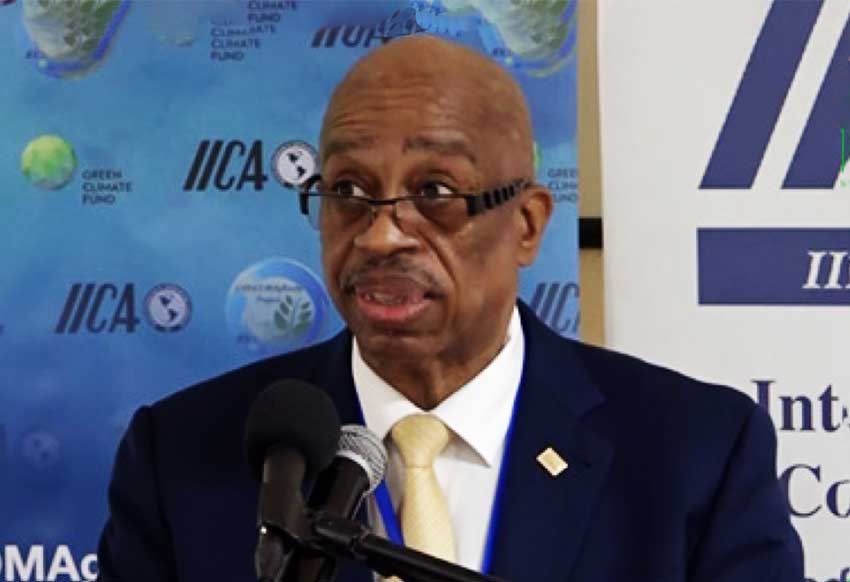
High ranking agricultural personnel from the region met recently for an essential discourse on climate intervention for the sector.
An IICA-led CARICOM AgriReady Regional Workshop sought to engage senior Caribbean agriculture policymakers and ministry officials in roundtable discussions on precise climate interventions that may be initiated regionally, to support ongoing actions toward a sustainable agri-economy.
IICA Representative to the Eastern Caribbean States, Gregg Rawlins, referred to the exercise as highly relevant in this juncture of agri-food development in the region. He said the outcomes of the project titled “Strengthening the Foundation for a Climate Responsive Agriculture Sector in the Caribbean,” is the first GCF multi-country readiness project of its kind to be implemented in the Caribbean.
“The project seeks to strengthen the foundation to increase the capacity of the agriculture sector in Caribbean countries to access climate financing for building resilience and promoting Caribbean development,” Rawlins explained. “Such financing will be critical if the agri-sector is to respond effectively to adaptation measures and to the significant adverse impacts of climate change.”
Minister for Agriculture, Hon Alfred Prospere, in acknowledging the timeliness of the AgriReady Regional Workshop said combining efforts to simultaneously support and implement a region-wide strategy to boost resilience against climate impacts on the sector is the best way forward to not only bolster activity with in sector itself but also enhance food security interventions being undertaken within the Caribbean agri-economic space.
“Events such as this regional workshop provide a much needed platform for the sharing of information and networking that will empower and position policymakers in the agriculture sector to develop strategies for building a climate resilient agriculture sector in the region,” he said. “More specifically, the regional workshop will reflect on some of the key outputs of the project which is focused on developing and rebranding Caribbean agriculture as having low emissions, and low carbon development.”
Nine CARICOM member states will work collaboratively to augment technological capacities and other climate responsive solutions to address the ongoing impacts and often unexpected incidents of climate change on the agriculture sector.













